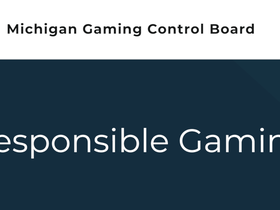This new initiative will allow the NJDGE to work with the gaming industry to identify problematic patterns in player wagering behavior and intervene before they escalate.
The New Jersey Division of Gaming Enforcement (NJDGE) will now require online operators to analyze data collected from their customers to find those considered the most at risk of developing a gambling problem.
It’s a first-in-the-nation initiative in the US that’s already won the support of advocates for problem gambling education and treatment in the Garden State.
Operators have been collecting information about their customers for years. User agreements routinely stipulate that before an individual is granted access to online gambling platforms, they must agree to have their play monitored and recorded.
Until now, operators have used customer data to detect and prevent cheating, fraud, identity theft, and theft.
“Operators of online wagering platforms also currently train their staff members who interact with players to identify red flags indicative of a gambling disorder,” the office of New Jersey Attorney General Matthew Platkin said in a statement earlier this month.
“But this new effort ensures that data, not just observation by platform personnel, will be used to pinpoint players who might need help, and dedicated responsible gaming personnel will reach out to them.”
Under the initiative, operators will look for “problematic patterns” in the gambling behaviors of their customers. Specifically, the NJDGE has warned operators to be on the lookout for:
- Players who spend increasing amounts of time gambling
- Customers who repeatedly self-impose cool-off periods
- Bettors who wager until they have less than one dollar in their accounts
- People who access the self-exclusion page but don’t sign up
- Large deposits made within a short period
- Multiple requests from a customer to increase their limits on deposits or losses within 24 hours
New Jersey’s gaming law requires operators to include specific responsible gambling language in their advertising. Customers must also be allowed to monitor and control the amount of time and money spent on gambling through time and deposit limits, respectively.
The Garden State also runs a self-exclusion system.
According to Platkin, NJDGE has been planning the initiative since March 2022. It officially launched on January 1, 2023. He added that the initiative only applies to online wagering and supplements the state’s existing efforts to promote responsible gaming.
“This new initiative will allow the NJDGE to work with the gaming industry to identify problematic patterns in player wagering behavior and intervene before they escalate,” the AG said.
Operators will now be required to intervene to help their customers directly. At the very least, they will need to make their customers aware that they are exhibiting warning signs that they have a gambling problem.
A three-level system for intervention has been established. The first calls for operators to send an automated message on responsible gaming and available resources to any customer showing signs of having a gambling problem.
If the signs persist, a customer must watch a video on responsible gaming before being allowed to continue gambling.
Under the third level of intervention, an operator’s responsible gaming department will be required to meet with the customer directly and address any problem gambling issues.
Said NJDGE Director David Rebuck: “We are using data to identify at-risk players, alert them to their suspected disordered gambling, and inform them about responsible gambling features on online platforms and corrective actions they can take.
“This new approach will enable dedicated responsible gaming experts employed by the platforms and us to see the early warning signs and reach at-risk patrons before they find themselves in a financial catastrophe.”
The Council on Compulsive Gambling of New Jersey (CCGNJ), a non-profit devoted to providing information and referral services to people in the Garden State affected by problem gambling, supports the NJDGE’s initiative.
“CCGNJ is encouraged by the NJDGE’s efforts to identify online betting behavior to assist at-risk gamblers,” said the organization’s executive director, Felicia Grondin.
“Given the increasing popularity of online gambling, initiatives such as this are more important than ever. In conjunction with our virtual and in-person problem gambling training for industry employees, this effort makes for a more thorough approach to identify and assist those who may be suffering.”




